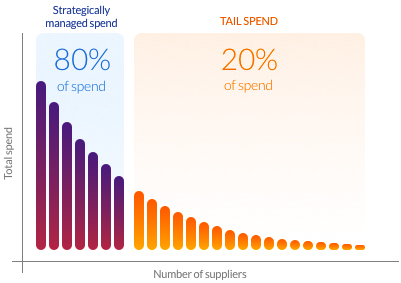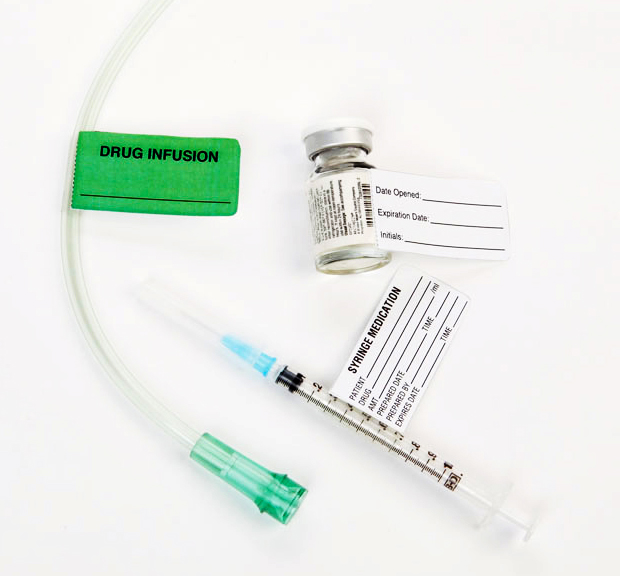Reducing Hospital Supply Chain Costs
Labels aren’t your largest procurement expenditure. But, just like more expensive medical devices, healthcare labels enable the clinical staff to perform effective patient care and comply with important patient safety standards. Plus, they represent a standardization opportunity; one that reduces costs and improves patient care delivery.
The Cost Of Multiple Suppliers

A 200 bed acute care hospital uses, on average, 165 unique labels, typically a mix of stock and custom items. And, when you add in multiple facilities, clinics, physician practices, home health care and extended care facilities characteristic of many health systems, that number grows substantially. The dispersed locations, past purchasing practices and perceived unique product capabilities can lead to multiple vendors supplying common items.
In fact, our research dating back over five years found that healthcare facilities typically use 7 to 15 different suppliers. And historically, the largest opportunity created by supplier consolidation is financial, in the form of lower costs. As the number of suppliers is reduced, buying power increases. But, the Hacket Group reports that reduced process costs may represent an even larger opportunity. Fewer suppliers reduce the number of separate transactions, the amount of time it takes to manage those suppliers and more.
Furthermore, labels often fit into the “tail spend” category. “Tail spend” is the perceived low-value spend that is often unmanaged or receives minimal procurement attention. In a similar study, the Hacket Group found that tail spend management brought average savings of 7.1% to survey respondents.
Healthcare label providers with a broad product offering, such as UAL, minimize or eliminate the need for multiple suppliers and can drive lower product and process costs.
GPO Contracts
In the same study of label suppliers used by healthcare organizations, RRD also found that the majority of the label suppliers identified did not have group purchasing contracts.
But, label suppliers with those affiliations allow you to increase your GPO spend, leverage rebate opportunities and reduce overall procurement costs.
Standardizing Inventory
Do hospitals need IV line labels from multiple suppliers? Standardization not only reduces acquisition costs but eliminates potential protocol inconsistencies.
In addition, today it’s common for physicians and nurses to travel to different practice sites. And, different protocols create challenges that breed patient safety risks. A single supplier that understands protocols and internal processes make it easier for nurses to perform their jobs and elevate patient safety.
Read The IV Line Label Case Study

Reduce Waste
Gartner Research suggests that hospitals can reduce supply chain expenses by up to 15% by just analyzing, planning, and controlling the purchase and use of supplies in the facility. For example, although labels don’t have expiration dates like medications, label adhesives fail with age and improper storage. A medication label that falls off a syringe or vial creates potentially dangerous patient safety issues. So, similar to medications, understanding how much product is needed and when, will decrease costs due to wasted, lost or expired supplies.

Label Material And Healthcare Expertise
Suppliers of important products may not be on your list of top expenditures. For example, the clinical staff couldn’t dispense medications accurately without a flag label procured from a label company. Applied to a vial, syringe or other medication dispensing device, it communicates essential information to nurses and pharmacy techs. That’s why evaluating single source healthcare label suppliers is still a good strategy. In fact, a company with both healthcare and label knowledge will likely provide a more reliable solution; one that minimizes the time and attention spent on managing the supply chain. Plus, they are often available to provide staff education to ensure effective use.
Engaging partners like these allow you to leverage numerous cost savings opportunities and clinical improvement benefits.
United Ad Label
UAL’s complete stock and custom label product offering, combined with an in-depth knowledge of hospital processes, procedures and protocols, allow us to standardize items, reduce SKUs, and reduce costs while enhancing error prevention and improving clinical outcomes. Contact us to learn more about our services.